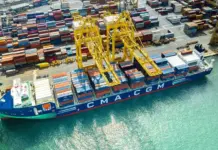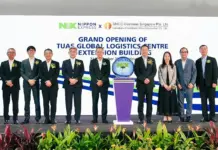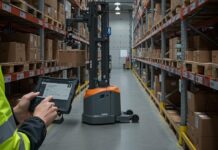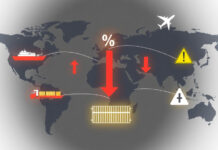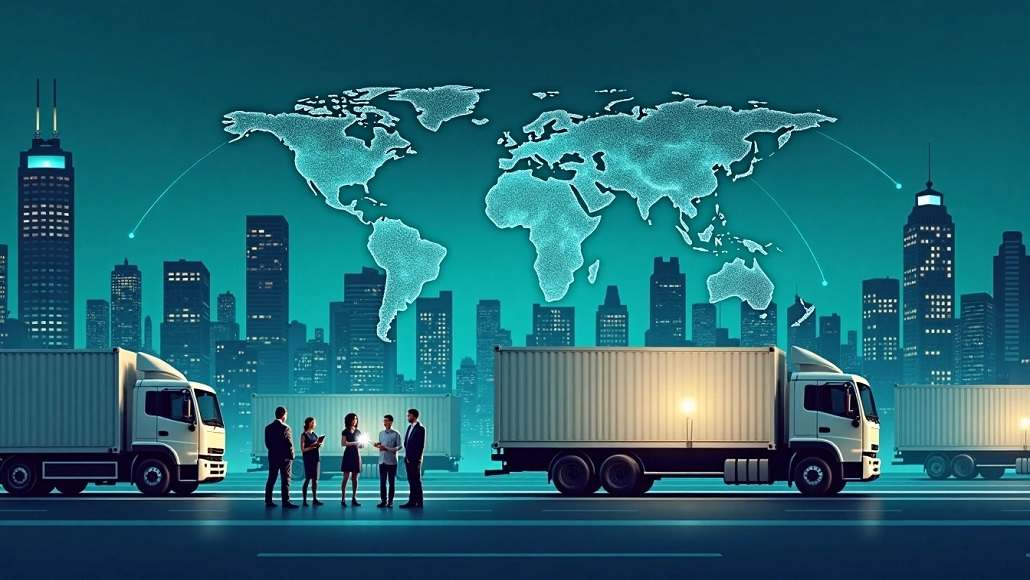The logistics industry stands at a crucial intersection of technology and human expertise. While the shift to automation, AI, and data-operationalisation is underway and creating a booming market, 3PLs are relying on the human touch as a differentiator. As machines and algorithms are making efficiency and lower costs, it is that uniquely human attribute of empathy, flexibility, and building relationships that continue to differentiate 3PLs amidst the automatization of all things.
For 3PLs, the balance of cutting-edge tech tools and human smarts is not merely a matter of operating efficiency; it is about building memorable experiences and establishing trust among customers. Recognizing the subtle contribution that humans bring to logistics, we see why despite moving forward to a more digital age, the human touch cannot be replaced.
Human Empathy and Customer-Centric Relationships
At the core of every successful 3PL company is a customer-driven philosophy fueled by human empathy. Logistics is not so much about transporting products from point A to point B; it is about knowing clients’ distinct needs, struggles, and expectations. While automated systems fail to understand emotions, human professionals possess the priceless capability of interpreting customers’ emotions, addressing their concerns compassionately, and establishing trust through the years.
Empathy is vital to individualized service. A consumer who needs urgent deliveries may be anxious, or may not know what the next step is. If a 3PL employee has strong active listening and responds with empathy, a frustrating experience can become a positive experience. The ability to empathize and address pain points increases the likelihood of ongoing loyalty to a provider, and also helps a 3PL or logistics company differentiate themselves in a competitive marketplace.
In addition, humans as experts are valuable by providing alternatives to routine processes and providing custom solutions. By being in direct contact with the consumer, a 3PL employee can discover their individual needs and can use the methods of the provider to fulfill them. 3PLs have that human element to ensure any interaction with the consumer can be made personal, purposeful, and in a professional manner.
The Role of Humans in AI Oversight
As great as artificial intelligence has been in transforming logistics by automating mundane functions and processing big data, human leadership is still the key to making sure that AI programs behave well and perform well. Algorithms are just as good as the input they are given, and machines never have the same context or judgment needed to make sense of complicated situations.
Human factor in 3PLs are the interpreters and stewards of AI-powered operations. They confirm algorithmic results, uphold regulatory compliance, and apply ethical principles when making decisions. For example, whereas an AI system might optimize delivery routes solely on the basis of cost and time, a human operator could modify those routes to maximize safety or environmental responsibility.
Besides, human supervision remedies the shortcomings of AI when it comes to coping with exceptions or outliers. In logistics, unexpected issues like weather-related disruptions, geopolitical tensions, or supply chain congestion can make automated systems useless. Human wisdom fills in the gaps by applying essential reasoning and responsive problem-solving to make operations seamless and dependable.
Navigating Last-Minute Disruptions
The logistics sector is well accustomed to the disruption caused at the last minute by natural disasters, mechanical breakdowns, or unexpected surges in demand. During such periods of uncertainty, the human touch comes into play. Machines may be able to review data and make recommendations, but it is human experts who make bold decisions and manage responses in the moment.
3PL groups are adept at crisis management as they use their experience, insight, and communication capabilities. They analyze the situation swiftly, set priorities, and mobilize assets to reduce the effects of disruptions. If, for instance, a high-priority shipment is unexpectedly delayed, a human logistician might negotiate with carriers, re-route shipments, or arrange with alternative vendors to get goods delivered on time.
Furthermore, effectiveness in handling disruptions and empathetic consideration positively affects client relationships. Clients appreciate transparency, commitment, and respect that human professionals bring to the situation when a crisis arises. Crisis creates an opportunity for 3PLs to demonstrate their value to their clients and deepen a trusted relationship.
Elevating Efficiency While Ensuring Accountability
Efficiency and accountability are the two constant foundations of successful logistics operations, and humans have a fundamental opportunity to be in between those priorities. Technology saves time and allows for errors to be minimized, but it is the human that ensures that all operations are ethical, transparent, and focused on clients.
Logistics accountability usually translates to 3PLs communicating directly with their customers. Human experts own up to the performance of tasks, resolving issues, and correcting mistakes when they happen. This does not only foster trust but also enhances the credibility of 3PLs as trusted partners.
The oversight of humans at the same time furthers the ethical use of technology resources. For example, data analytics may suggest operational efficiencies that save a company money, but it is human expertise that establishes if these efficiencies are consistent with client needs and ethical concerns. Thus, by combining efficiency and consideration, 3PLs reinforce a culture of excellence that underscores their commitment to consumers and stakeholders.
Combining Innovation with Human Intelligence
Innovation is the single largest variable influencing modern-day logistics, and 3PLs are at the forefront of using new, state-of-the-art technologies with the most attention. From robotic warehouses to data analytics powered by artificial intelligence, logistics has changed in so many ways in the way products are stored and shipped. However, the extent to which these technologies can be utilized is substantially reduced without mixing in human brains.
Human factor in 3PLs world is often the driver of innovation. They look to understand where value can be created by technology, often implement new solutions, and continue to improve processes to drive outcomes. For example, the logistics manager will frequently utilize artificial intelligence to assess demand trends, but he or she will be tasked with using their judgment to account for varying market conditions.
This partnership of human intelligence and innovation alone offers assurance that technology is not solely a replacement for human intelligence, but also a mechanism to help humans. It enables 3PLs to respond to changing customer needs and easily adapt to new challenges and opportunities.
Building Long-Lasting Client Relationships
A long-term relationship with a customer is always based on trust, communication and respect—what are ultimately just human qualities. Technology can create interactions and automate repetitive processes, but it remains the human connection that establishes real relationships with clients.
3PL experts take the time to learn about customer objectives, challenges, and aspirations. They become partners, not service providers, providing strategic guidance and customized recommendations to assist customers in meeting their goals. Frequent meetings, customized counseling, and anticipatory problem-solving reinforce these relationships as well over time.
Moreover, human professionals introduce a sense of responsibility and dedication that creates a culture of loyalty. Customers appreciate the dependability, honesty, and devotion that 3PL teams exhibit in their interactions. Through their focus on building relationships, 3PLs become invaluable partners in customers’ success.
Shaping the Future of AI in Logistics
As the logistics sector keeps embracing artificial intelligence, the role of human experts will change but not become obsolete. The future of AI in logistics has nothing to do with replacing humans, but rather maximizing their capabilities to let them do more valuable work.
Human experts will be the ones defining the ethical and strategic application of AI in the logistics field. They will ensure the responsible design and use of AI systems that are transparent, inclusive, and sustainable. By adding their expertise to AI-augmented insights, 3PL teams will achieve levels of efficiency, innovation, and customer satisfaction that were never before possible.
In addition, the use of AI will provide avenues for upskilling and career development. As repetitive work is delegated to machines, human professionals can instead invest their time in cultivating their strategic, analytical, and interpersonal skills, making themselves valuable additions to the logistics ecosystem.
Conclusion
It is the human touch that makes 3PLs stand out in a technology-centric age. Empathy, flexibility, and relationship management are priceless assets that allow 3PLs to provide outstanding value to their customers. With the right balance of technological innovation and human wisdom, 3PLs build a logistics ecosystem that is not just efficient but also robust, ethical, and customer-centric.
As 3PLs further develop in parallel with advancements in artificial intelligence, human professionals will always be the primary component to their success. These are the individuals who bring the depth, creativity, and ethical responsibility required to navigate the complexities of logistics today. Finally, the future of human factor in 3PLs will be a carefully curated balance of technology and human performance, a co-existence that will long challenge the definition of logistics.




